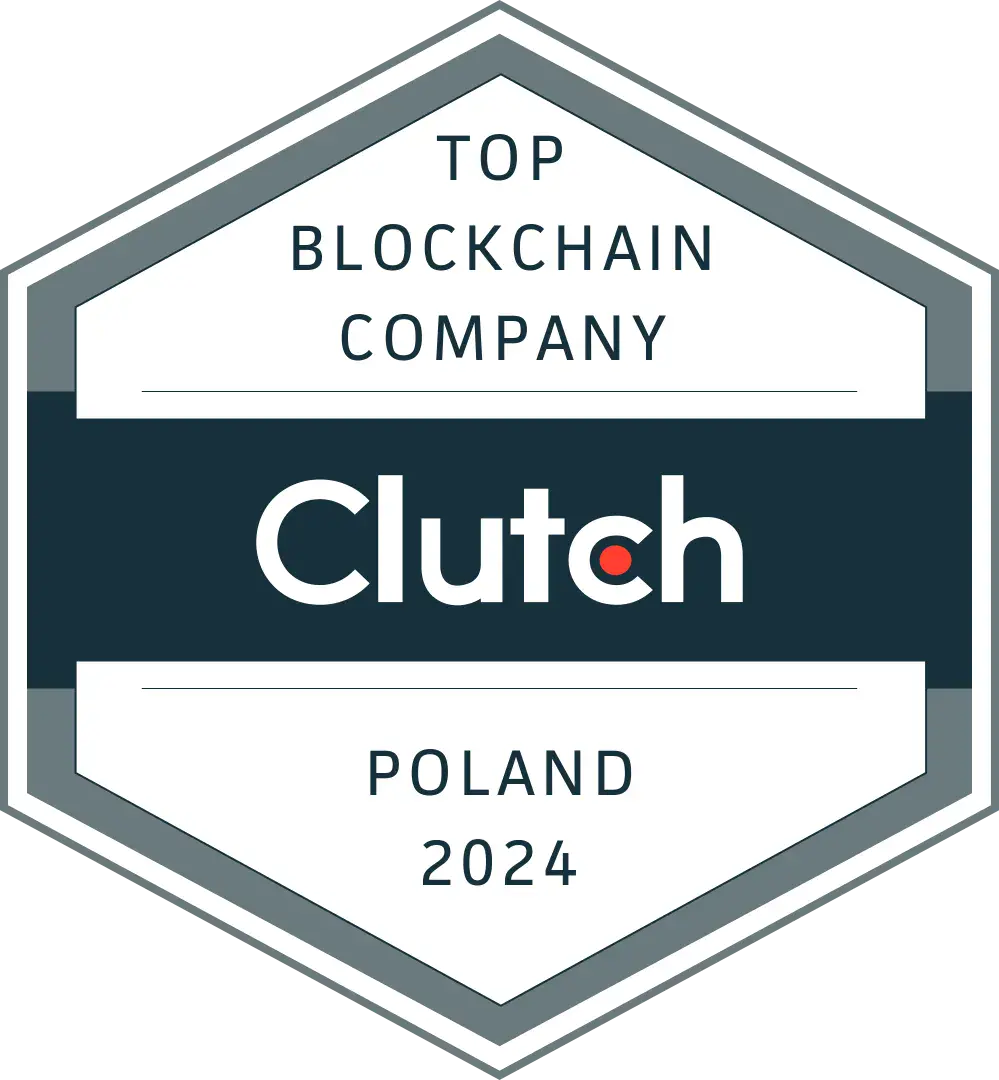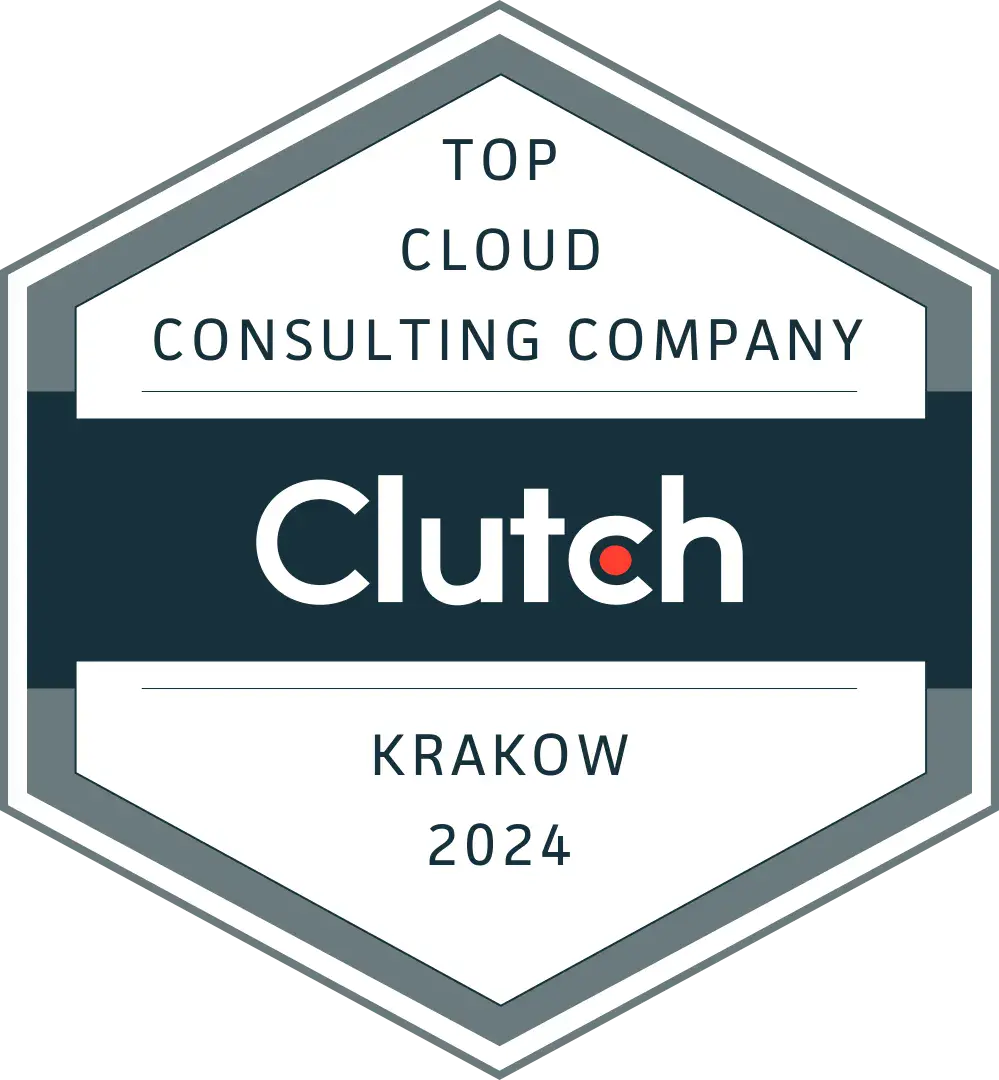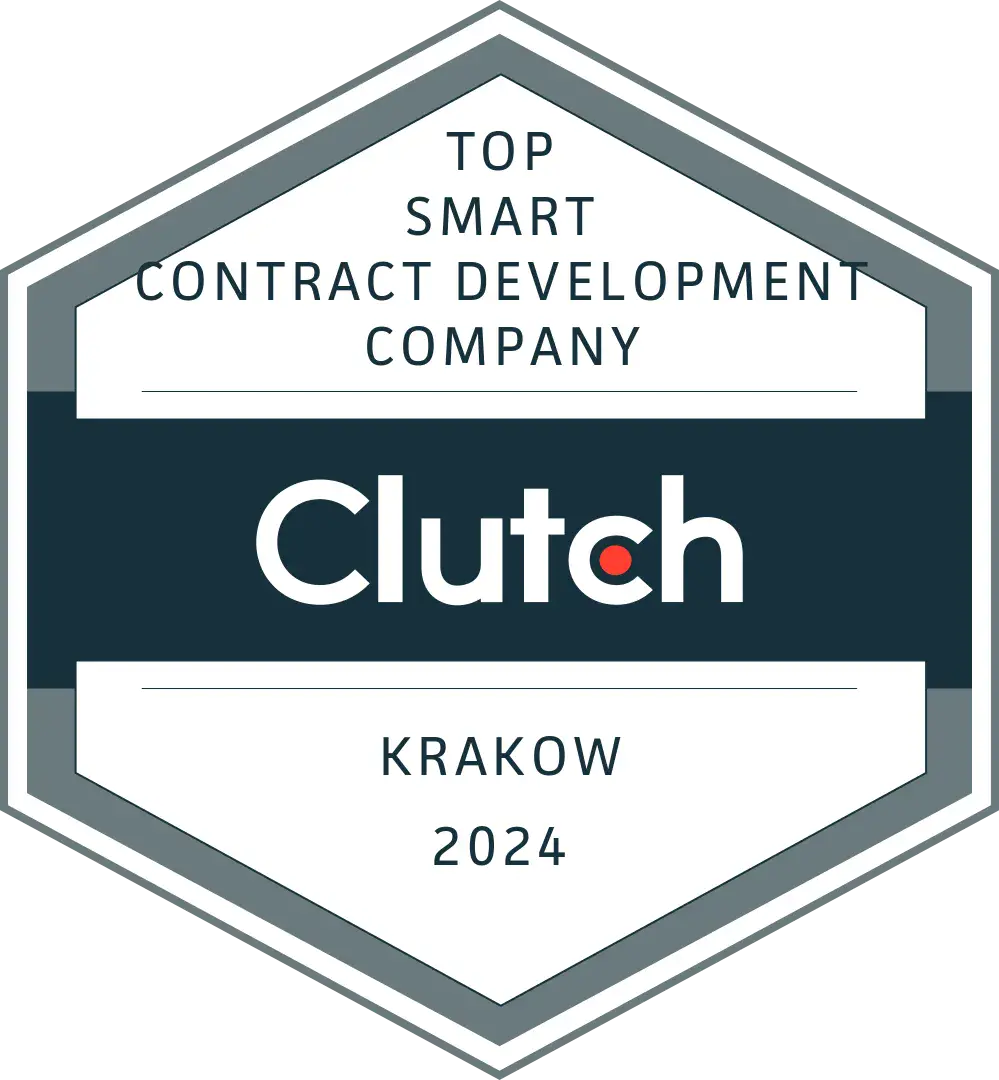Top Benefits of AI and Blockchain Combined
Mon, Oct 14, 2024 •10 min read
Category: Business Stories / Blockchain / AI
Combining AI and blockchain is revolutionizing data security, operational efficiency, and transparency across various industries. This article explores how AI and blockchain combined can enhance data integrity, streamline operations, and lead to innovative solutions in sectors like finance, supply chain, and healthcare.
Key Takeaways
- The integration of AI and blockchain enhances data security, integrity, and operational efficiency, creating robust systems that are secure and decentralized.
- AI improves the capabilities of smart contracts and supply chain management while blockchain ensures transparent and immutable data storage.
- Challenges such as data privacy, scalability, and interoperability remain significant barriers to the widespread adoption of AI and blockchain technologies.
The Synergy of AI and Blockchain
Combining AI and blockchain technology is like merging the best of two worlds. Blockchain technology, with its immediate, shared, and transparent exchanges of encrypted data, serves as a robust foundation. It acts as a shared and permanent ledger for data encryption, making it nearly impossible to manipulate, deceive, or hack. Integrating AI into this framework enhances security, transparency, and operational efficiency across various industries, creating systems that are immutable, secure, and decentralized.
Despite the largely unexplored potential of this integration, it presents new opportunities for development and innovation. Imagine AI’s predictive capabilities and machine learning algorithms working in tandem with blockchain’s decentralized infrastructure. This combination can lead to more sophisticated data analytics, seamless integration of business processes, and enhanced decision-making capabilities.
Next, we will explore the specific benefits of integrating AI and blockchain, focusing on enhanced data security, improved data integrity, and increased operational efficiency.
Enhanced Data Security
One of the primary benefits of combining AI with blockchain technology is the significant enhancement of data security. AI’s predictive capabilities can analyze patterns and forecast potential vulnerabilities, thereby preventing fraudulent activities and ensuring the integrity of the blockchain network. AI algorithms can identify irregularities within blockchain data to enhance security measures and protect sensitive information from potential threats.
Additionally, using blockchain-based storage within AI systems promotes transparency and reliability. Blockchain serves as a reliable, transparent source of refined data, which is crucial for AI systems to improve data management and security. This synergy ensures that data storage and management are secure, reducing the risk of compromising data privacy.
Improved Data Integrity
Another crucial benefit of combining AI and blockchain technology is improved data integrity. AI helps verify the accuracy of historical data before storing it on the blockchain, ensuring it remains precise and reliable. This verification process improves compliance within blockchain networks, ensuring consistent and trustworthy data usage.
The immutable nature of blockchain technology means that once data is stored, it cannot be altered. This immutable record is crucial for maintaining the integrity of the underlying data, ensuring that historical data remains untainted and reliable. AI’s role in verifying data accuracy before it is recorded on the blockchain further strengthens this integrity.
Increased Operational Efficiency
Merging artificial intelligence with blockchain technology greatly enhances operational efficiency. AI can automate decision-making processes, leading to streamlined business processes and reduced costs associated with manual operations. This automation minimizes the potential for errors, enhancing the overall performance and competitiveness of businesses.
Furthermore, this efficiency leads to better resource allocation and more effective supply chain management. By leveraging AI’s predictive capabilities and machine learning algorithms, businesses can fully realize the potential of their operations, leading to enhanced productivity and profitability.
Key Use Cases of AI and Blockchain Integration
The integration of AI and blockchain technology is poised to revolutionize a multitude of industries. This rapidly growing market is projected to expand significantly, with an estimated annual growth rate of 23.64%. Businesses that integrate AI in blockchain applications gain enhanced operational efficiency, data accuracy, and information security.
From finance to supply chain management, the potential applications of AI and blockchain integrations span various use cases. AI mines data, creates patterns, and discovers data behavior to enhance blockchain capabilities. This combination provides improved analytics and decentralization benefits, leading to innovative solutions in different sectors.
Supply Chain Management
The integration of AI and blockchain technology offers significant benefits for supply chain management. AI-driven analytics helps optimize inventory management and make data-informed decisions, improving overall efficiency. Blockchain networks improve supply chain tracking by offering a distributed ledger that enhances transparency. Overcoming integration challenges between AI and blockchain can lead to improved operational efficiency in supply chain management, transforming the business world.
Healthcare Innovations
AI and blockchain technology are making waves in the healthcare industry, offering new possibilities for improving data performance and efficiency. AI analyzes health data patterns, resulting in more accurate diagnoses and personalized treatment plans. Meanwhile, blockchain secures and distributes this data, guaranteeing privacy and integrity.
Federated learning allows collaborative training of AI models while ensuring decentralized data storage, and enhancing privacy. Together, AI and blockchain facilitate personalized treatment plans while improving data privacy and management, revolutionizing healthcare.
Enhancing AI Models with Blockchain
Blockchain technology offers unmatched data provenance, securing the integrity of training data and AI model outputs. By facilitating transparent records of AI models, blockchain enables the analysis of audit trails and immutable data ledgers, promoting trust and reliability.
AI improves the speed of data queries on the blockchain, promoting efficiency in data access and utilization. This integration is likely to result in more sophisticated data analytics, fostering better decision-making and enhancing advanced AI models.
Secure Training Data
Blockchain technology can serve as a decentralized repository, enhancing the trustworthiness of datasets used for training machine learning models. By preventing unauthorized alterations to training datasets, blockchain ensures that AI models learn from accurate and reliable information.
Additionally, blockchain enables data-sharing agreements, allowing multiple parties to contribute to AI training while preserving data privacy. This secure data management fosters user trust and enhances the integrity of AI models.
Decentralized AI Networks
Decentralized AI networks use blockchain technology to foster a collaborative environment for innovation. Blockchain enhances collaboration in AI development by providing a platform for shared models and results without central oversight.
Blockchain supports the establishment of trust among participants by enhancing data provenance in decentralized AI networks. This allows users to trace the origins and modifications of shared datasets, ensuring fairness in the allocation of computational resources.
Overcoming Challenges in AI and Blockchain Integration
The integration of AI with blockchain is often limited by various technological and regulatory hurdles. These challenges affect adoption and functionality across different sectors, hindering the full potential of combining these technologies. A lack of standardized protocols and frameworks creates significant challenges in interoperability, affecting the seamless exchange of data between different blockchain networks.
Data Privacy Concerns
Data privacy is a significant concern when integrating AI and blockchain technology. AI adds monitoring for anomalies and immediate mitigation measures to blockchain security. Secured multi-party computations (SMPC) enable private data analysis while preserving privacy in AI and blockchain applications.
Advanced techniques such as GAN cryptography protect communication channels using neural networks, enhancing privacy in data exchanges. However, the absence of standard protocols can impede effective communication and integration of AI systems across various blockchain networks, posing risks to data privacy.
Scalability Issues
Scalability remains a critical challenge in integrating AI with blockchain technology. The limitations of processing speed and data storage pose significant hurdles. In a federated learning setup, discrepancies or malicious activity can further complicate scalability.
One effective solution is to use the auditable on-chain information trail to trace the source of discrepancies, ensuring accountability and reliability. Additionally, exploring solutions such as layer 2 scaling and sharding can enhance the transaction capacity of blockchain systems used in AI applications.
Interoperability Barriers
Interoperability between different blockchain systems is crucial for the seamless integration of AI and blockchain technology. However, various silos and the variety of protocols and consensus mechanisms employed by different networks pose significant hurdles. Ensuring effective interoperability while maintaining scalability and performance is a major challenge for developers.
AI can assist in overcoming these interoperability challenges by automating the translation of data between different blockchain protocols. AI’s predictive capabilities can also identify and resolve potential issues in cross-chain communications, enhancing reliability.
Future Trends in AI and Blockchain
The combination of AI and blockchain is spurring growth across various sectors, and it is projected to become a billion-dollar industry within the next decade. AI models enhance the security and integrity of the underlying data. They also streamline workflows with smart contracts, maintaining their position as technical trailblazers.
AI in Urban Planning
AI combined with blockchain can enhance decision-making processes in urban planning by providing transparent data management. This combination is vital for optimizing urban planning and improving infrastructure management.
Transparent data management ensures that all stakeholders have access to reliable information, leading to better resource allocation and infrastructure management.
Generative AI and Blockchain
Generative AI models, which create original content, are reshaping creative industries by providing innovative solutions and ideas. Integrating blockchain technology with generative AI models enhances transparency and security in the creation and distribution of content. This combination allows for the unique verification of original content, ensuring authenticity and combating intellectual property theft in creative fields.
The synergy between generative AI and blockchain has the potential to revolutionize content generation, making it more secure and efficient.
Summary
The integration of AI and blockchain technology offers transformative benefits across various sectors. Enhanced data security, improved data integrity, and increased operational efficiency are just some of the advantages of combining these powerful technologies. Key use cases, such as smart contracts automation, supply chain management, and healthcare innovations, demonstrate the significant impact of this integration on industry practices.
Looking towards the future, AI and blockchain are set to drive substantial growth and innovation. Urban planning and generative AI are just two examples of how these technologies can revolutionize traditional processes and create new possibilities. As challenges related to data privacy, scalability, and interoperability are addressed, the full potential of AI and blockchain integration will be realized, paving the way for a more secure, efficient, and innovative digital landscape.
Frequently Asked Questions
What are the main benefits of integrating AI and blockchain technology?
Integrating AI and blockchain technology offers enhanced data security and integrity, alongside increased operational efficiency. This powerful combination can lead to significant advancements across industries like finance, supply chain management, and healthcare.
What challenges are associated with integrating AI and blockchain technology?
Integrating AI and blockchain technology is challenging due to data privacy concerns, scalability issues, and interoperability barriers. Addressing these challenges is essential for seamless integration and widespread adoption.
How can blockchain technology improve AI models?
Blockchain technology can significantly enhance AI models by ensuring the integrity and transparency of training data, thereby improving trust in the datasets utilized. This leads to more reliable AI outputs and promotes confidence in the decision-making processes powered by these models.
What future trends can we expect in AI and blockchain integration?
You can expect AI and blockchain integration to enhance urban planning through improved decision-making and infrastructure management, while generative AI combined with blockchain will transform content creation by ensuring authenticity and security.










